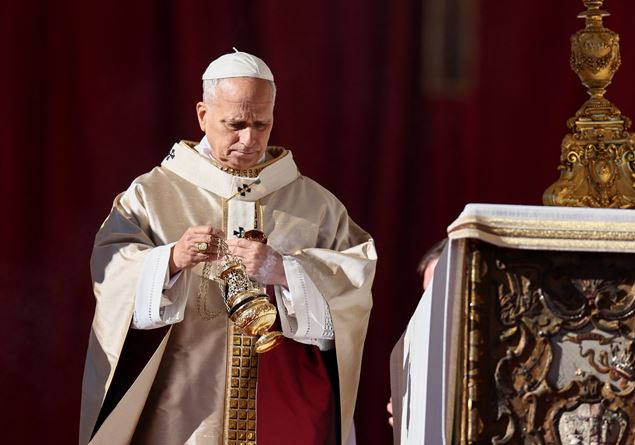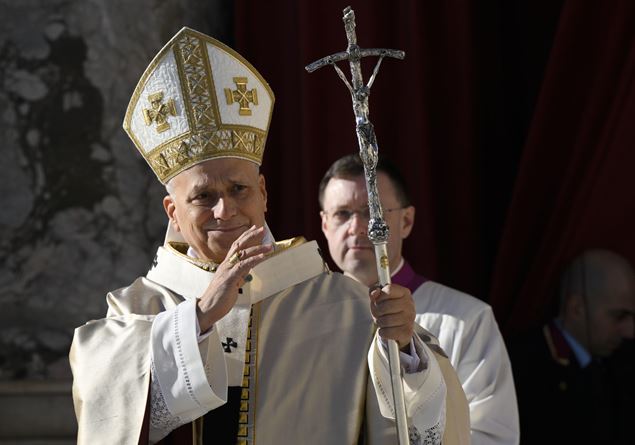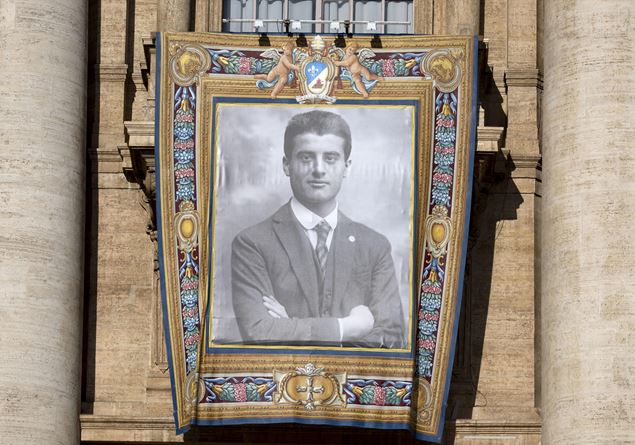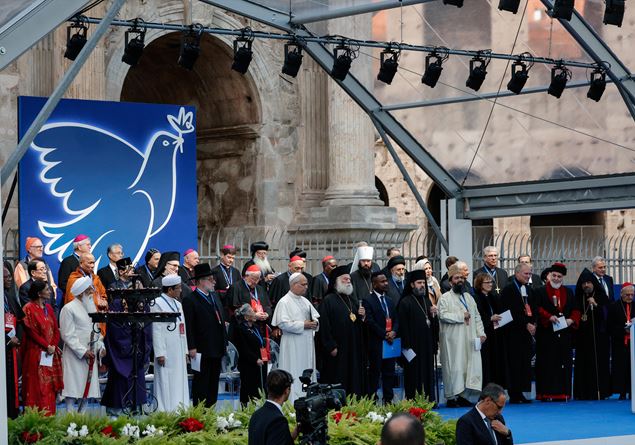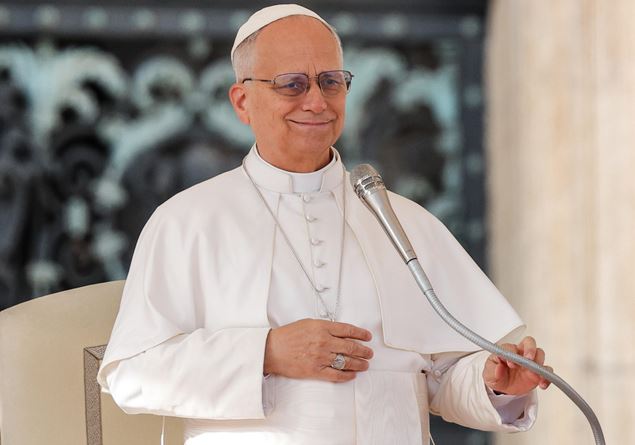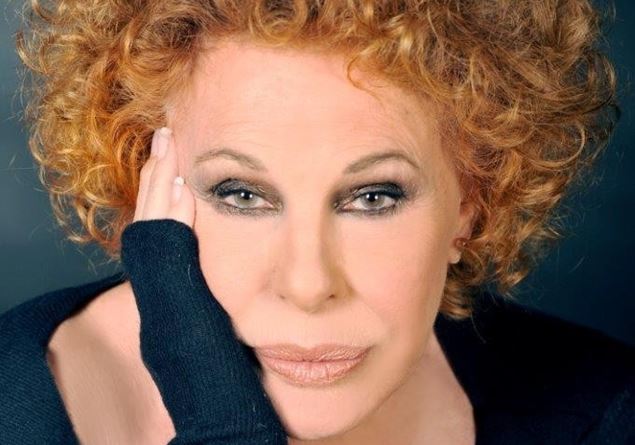“Enough! We cannot accept that we become accustomed to war as a companion to human history. No more wars, with their painful heaps of deaths! Lord, hear our cry! It is “the cry of the Earth” of which Pope Leo XIV spoke in his first public speech outside the Vatican. In the background stands the Colosseum, at the foot of the Arch of Titus are gathered – some in colorful clothes, some in austere tunics – Sunni and Shiite Muslim imams and theologians, Jewish rabbis, bishops, pastors and exponents of the different Christian confessions, Hindus and Buddhist monks, wise men of Eastern religions, intellectuals of secular and humanist thought, for the final ceremony of the international meeting organized by the Community of Sant’Egidio from 26 to 28 October in Rome. Three days in which we talked about the geography of suffering and the geography of hope, of those who suffer in Gaza, Sudan, Congo, Ukraine, of those who are forgotten in Haiti or Afghanistan, of the weak strength of prayer and interreligious dialogue, of nuclear disarmament and the future of Africa. On the day of the inauguration, Kondo Koko, a survivor of the Hiroshima atomic bomb, conveyed a fundamental message starting from her suffering: “It’s the war we should hate, never the people!”. The Pope summarizes the meaning of the three days: «Let us echo the people’s desire for peace. We become the voice of those who are not listened to and have no voice. We must dare for peace!
Marco Impagliazzo, like Leo XIV, also remembers Assisi ’86, citing the invitation of John Paul II, when he said “peace is a construction site open to all”. It was October 27, 1986, Wojtyla invited the religious leaders of the world to Assisi to pray for peace, never again against each other, but alongside each other. It was a historical moment, a turning point in relations between religions. In the “spirit of Assisi”, year after year, these meetings of prayer and dialogue continued, which created a climate of friendship between religious leaders and welcomed many requests for peace. And shortly after, an applause from the thousands of people gathered in front of the Colosseum welcomes the announcement that the 2026 edition of the international meeting will be in the city of Saint Francis. The president of Sant’Egidio explains: «Talking about peace means resisting the evil of violence and war through words, prayer and friendship. In a world where the solution to conflicts seems to be only war, words lose value and are humiliated. It is believed that it is useless to talk, to talk to each other. Not for us: words count, also because we are all children of one Word.” In the three-day meetings, «we felt the need to listen to each other, talk to each other and learn why man becomes the enemy of those he doesn’t know. To love you need to know.” Significant are the images of the religious leaders who, after having prayed in different places each according to their own tradition, arrive in procession, at the foot of the Colosseum, walking together. Impagliazzo continues: «The new generations must know that everything is lost with the war and never forget!». Above all, he repeats, «that peace is always possible. Yes, because the poor and humble of the earth look to us with hope! The spirit of Assisi is a great responsibility: over the years we have become more sister religions and we hope that the people will become more brothers. We tried not to forget anyone, with prayer and memory.”
And it is significant that, in front of religious and political leaders, Sant’Egidio makes a refugee speak on behalf of the many who implore peace. Omer Malla Ali is 31 years old, a doctor and comes from the point where the Blue Nile and the White Nile meet, Sudan, “a place of beauty, history and kindness, today torn apart by a forgotten war between the national army and the paramilitaries”. He remembers the morning he woke up to the sound of fighter jets, bombs and gunfire: “The sky, once blue and full of promise, has darkened with smoke.” Death everywhere outside: lifeless bodies in the streets, people crying, running with nothing but fear in their hands. The radio said: “It will only take a few hours or a few days to control the situation.” But those “few hours” have now become more than two and a half years of war and loss, because war – it has been said several times in “Dare Peace” – is like a drug, you think you can stop whenever you want, but then you become addicted. «The Rapid Support Forces – continues Omer Malla Ali – went from house to house, killing, taking everything they wanted. They took away gold, money, dreams, leaving only silence and blood.” Fleeing from Khartoum to Wad Madani there too, in December 2023 “the same violence, the same screams, the same fear” returned: “They killed, arrested, raped women, even girls, sometimes in front of their families. The city has become a place of death.” When the guerrillas started looking for doctors, «I understood that my life was in danger. They gave us two choices: work for them or die. So I made the most difficult decision of my life: to flee my homeland.” Again a long and painful journey, leaving everything, on a small cart pulled by animals, crossing a river by boat, walking for hours under the scorching sun. «Finally – he is moving – I reached the border with Ethiopia: exhausted, hungry, but alive».
A refugee in Ethiopia, he met Sant’Egidio: «They didn’t ask me who I was or where I came from, they simply opened their arms, they gave me back hope». He arrived in Italy with the Community’s humanitarian corridors: «For the first time in many years, I sleep without fear. For the first time, I can dream again. Peace – he says with thanks – is not just the absence of war, but the presence of love.” As he speaks before the Pope, his heart is still in Sudan: «In El-Fashir, people have been living under siege for more than two years, without food, medicine, hope. Mothers give their children animal food to keep them alive. Those who don’t die from bullets slowly die of hunger. Please pray for peace to return to my country.”
Meanwhile, the 2025 Peace Appeal is proclaimed, the result of the meeting: each leader signs it, lighting the candle and placing it in a candelabra. It is significant that exponents of Judaism and Islam do it together, at the foot of the Arch of Titus, built two thousand years ago to celebrate another war in Palestine. We read in the Appeal: «The practice of force tramples on international law, weakens the institutions created in the aftermath of the Second World War to free the world definitively from the scourge of war. It promotes violence and aggression, justifies conflicts between peoples and creates disorientation and fear in society. Wars delude the illusion that the best future is against the other and without the other.” Religions, in the past also characterized by fanaticism and exploitation of one another, know: «that there is never a future without the other. No war is holy, only peace is holy!
